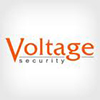
40 Percent of Companies Have Lost Major Sales Opportunities Because They Could Not Access Info
 Research conducted by Voltage Security revealed that the pressure on companies to access information to get their job done is dividing the workforce. While 40% of companies have lost a sales opportunity because employees weren’t able to access the information they needed, an alarming 46% avoided the possibility of losing a sales opportunity by bypassing security controls to access necessary, sensitive information to get the job done.
Research conducted by Voltage Security revealed that the pressure on companies to access information to get their job done is dividing the workforce. While 40% of companies have lost a sales opportunity because employees weren’t able to access the information they needed, an alarming 46% avoided the possibility of losing a sales opportunity by bypassing security controls to access necessary, sensitive information to get the job done.
The study[i] found that while an overwhelming 85% of employees say that security has added value to their company, 40% say security limits their ability to move information around. As a result, half of employees say their job is hindered because they aren’t getting access to all the information they need. With over half of respondents working for large organizations - the majority employing more than 5,000 people - employees are faced with a no-win situation. Of those questioned, 40% simply give up, resulting in lost sales opportunities, while a resilient 46% are pressured into circumventing security controls to close an opportunity.
The findings highlight the need for companies to strike a balance that allows employees to get to the data they need without compromising security by exposing sensitive information to the wrong people. With regards to security, the findings revealed a paradox, while 29% of organizations would notice within seconds or minutes if sensitive data wasn’t secured, a worrying 40% would never notice. This is even more alarming as more than half of respondents stated they had access to financial, customer or HR information they didn’t really need - putting potentially sensitive information at risk.
“It is safe to assume that with the majority of people working for major organizations with more than 5,000 employees, the loss of a single deal can be detrimental to business and may well cause millions in damage,” said Dave Anderson, senior director, marketing, at Voltage Security. “The results show that organizations employ an array of restricting security tools that struggle to make data available to the right people, though the fundamental issue of security remains. Protecting sensitive data is the key requirement. Security can, and should be, seamlessly integrated into current business processes, rather than stand-alone functions that enable employees to protect information at all times. Deploying a data-centric framework will enable companies to protect sensitive information at all times, while still allowing employees to access, use and move the data within the enterprise as needed to perform their duties.”
Anderson recommends the following steps to make sure companies can best protect their data while still ensuring it can be accessed and moved with the organization as needed:
- Think about a data-security strategy, not a security strategy based on only protecting a device, server, tape, disk, or media. This helps ensure any sensitive data can be protected anywhere it moves, and any way it is used.
- Focus on integrating the core data protection functions including encryption, tokenization and data masking capabilities across a single vendor solution. Individual point products that are not integrated can be difficult to deploy and manage, and this is often where control gaps are found.
- Implement data protection solutions that comprehensively protect all structured and unstructured data types across the entire IT infrastructure, including everything from legacy and mainframe to data in the cloud and on mobile. Only protecting a single data type or a limited number of applications can leave an organization exposed to a potential data loss.
[i] Study conducted by Voltage at RSA San Francisco in February 2013 with 300 IT professionals